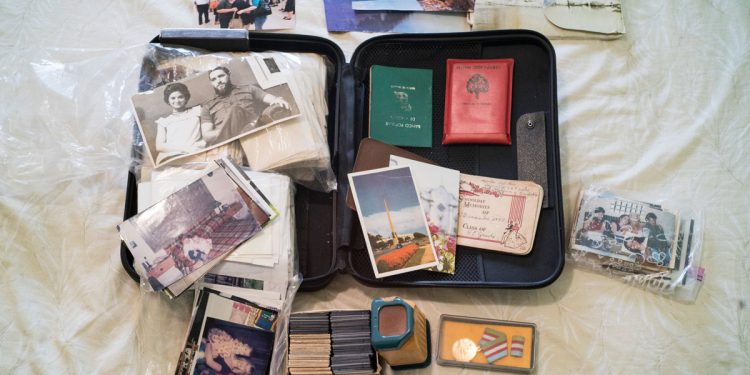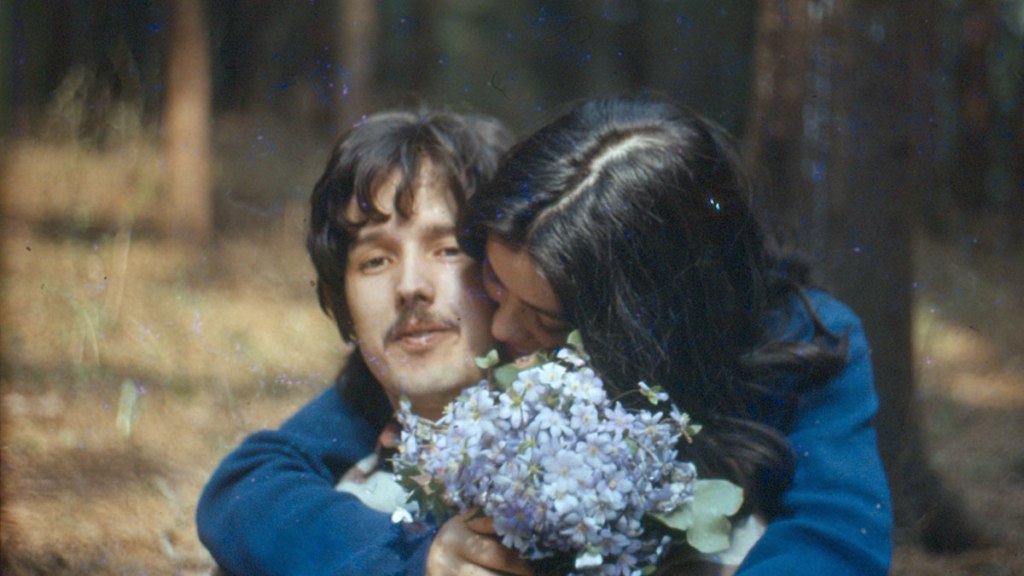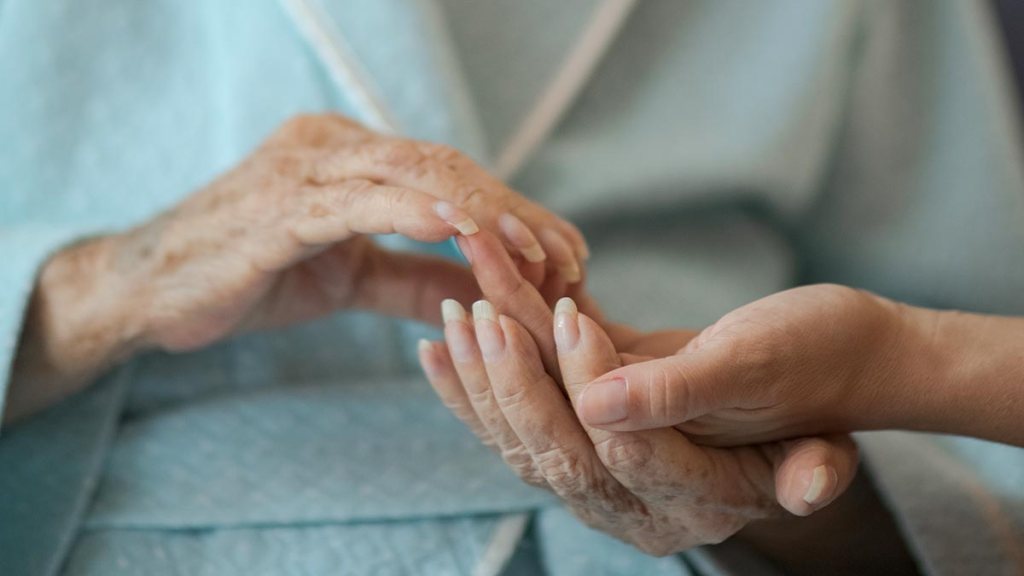
Interview with the young filmmaker, Carla Valdes, author of two of the winning projects of the new Development Fund for the Promotion of Cuban Cinema, published in January 2021 in the Cuban film magazine RevistaCineCubano.
Four years ago, Carla Valdés León graduated from the Faculty of Arts of the Audiovisual Communication Media (FAMCA) of the ISA in Cuba. Also four years ago she produced her first documentary, with which she not only became a filmmaker, but also won the award for the best documentary at the 2017 ICAIC ‘Muestra Joven’ the Cuban young filmmakers festival. ‘December Days’ explored the untold stories of Cuban soldiers in the Angolan war.
Since then she has been absorbed by documentary filmmaking. She had already been to Guadalajara, Mexico in 2015 to join the Mezcal jury of the 30th International Film Festival there. Later, she again demonstrated her interest in the genre with her participation in international projects such as ‘Debate’ (2017), ‘80 destinations’ and ‘Woman’, both from 2020, in the role of assistant director and, later, as an independent filmmaker in ‘Dos patrias’ (2019) and ‘Los puros’ (2020).
Of these works, those that left the greatest impression on Valdés were ‘Los puros’, about the memories of her parents in the Soviet Union, and ‘Woman’, the North American documentary by Yann Arthur Bertrand and Anastasia Mikova, which collects the life testimonies of several women around of the world.
The themes of family stories and the female gaze were such incentives that the 27-year-old Carla had no doubt about what her next projects would be: ‘ante el camino’ (‘On the road’) and ‘La línea de ombligo’ (‘Umbilical cord’). In the first two rounds of the Cuban Film Promotion Fund, she was the winner for the development of both documentary feature films, the first in its writing phase and the second for the production of it as a first film.
Valdés, along with other filmmakers, is in an unprecedented position for Cuban cinema. Cuba has begun to grant financing, for the first time, via the new ICAIC Development Fund, to the best works of independent artists and offers them the possibility of their development and presentation within the national framework. It is an initiative promoting integration and recognition of the diversity of sources of cinematographic creation in the country.
Why did you decide to apply to the Development Fund?
This Fund did not fall from the sky, it was the result of years of proposals, debates, difficult fights by the union and the institutions, as it is part of a reformulation of how to make and promote national cinema in the 21st century. So, I think those of us who had projects, whether in writing, development, production or post-production, we were going to apply. We achieved what we wanted, and were happy to apply to a national fund for the promotion of all Cuban cinema.
‘Ante el camino’ deals with a love and friendship story of a couple who travel to Belarus after 40 years. How much did your parents’ experiences influence you?
‘On the road’ is the love story of my parents. It is the epic song, the romance novel with which I was born and raised. They met in the eighties, in Minsk, Belarus (which was then a republic of the USSR), when they were students of Philosophy. They went there, in large part, for the adventure and for the desire to know that immense country.
My sister and I listened to the anecdotes of those years told over and over again in family after-dinner meals, together with friends: trips through the socialist world, acts of heroes of the homeland, Cuban, Russian, Nicaraguan, and Costa Rican friends, Greeks or Germans, their lives in a student hostel. We grew up with the perplexity of listening to them, speaking in a language that we did not understand every time they wanted to say something just to each other. We grew up hearing them talk about Gilberto, Ibis, Andrei, Svieta, José Álvarez and Uncle Matos.
This movie has been going on for years without my being aware of it. When they met again in Varadero in 2018, I knew I had to bring the camera, registering what I sensed was a story I had to tell. From that clumsy recording, without a script, struck by the emotion of being a part of the story itself, came ‘Los puros’, which will be presented at the International Festival of New Latin American Cinema [Havana’s annual film festival] in March 2021. This is a first short telling of their history, a test with the camera of how much and how they are willing to give it to me, give it to us. Hence the idea of going back to Minsk, of building a long story that weaves together their memories and my understanding or imagination about that past, was born. Accompanying my parents on that journey back to their youth. Just as they know that they will not find the country they left, I know that I will never get to know the country they told me about.

In ‘linea de ombligo’, however, there is a particular interest in the theme of women’s lives. Some reminiscences perhaps of the stories of ‘Woman’?
Family trees are the map of a family, its ancestors and descendants. If the succession is presented by the male line it is called the “blood line”. On the other hand, if this narrative is guided by female surnames, descendants with female names, then it is called the “umbilical line”.
‘Umbilical cord’ is a documentary project that (the team already involved in it and I) feel is very female. But it is not because they are stories of women that only interest women, but because we believe that it enters a space and a viewpoint that is and will be navigated by the female. We want to talk about memory, our memory as a nation and as families: registering the body of inheritance and everything it brings with it, everything it leaves in the fabric of a female archive. Not only are cancer or memory loss evils that my grandmothers suffer and did, but they are shaping a nation.
In this process I accompany my grandmothers in their farewell. Time is also passing in me, which is the time of my country. I accompany them until I can no longer accompany them and have to invent a way for them to continue accompanying me. It has been an urgent need to look at them, to listen to them as I had not done before. They are my grandmothers and they are also the women who made me. As a granddaughter, I have to be by their side and then I have to be for them. As a filmmaker, you must register these things.
It is a documentary that is born from the personal, but in the process it is achieved with the sensitivity and wisdom of the people who accompany me today: Lisandra López Fabé, its screenwriter; Lila Falcón, producer; Claudia Ruiz, director of photography; Lilmara Cruz Pavón, editor; Glenda Martínez, sound engineer; Alejandro Cuervo, graphic designer; and Pepe Gavilondo composer of the original music. Each one carries their own absences and memories, which come from the hand of their grandparents. So, I see our project as a space of sisterhood, of great questions, of memory, of search for what can be called “the soul that unites us.” These are immense words, but they are the challenges and the times that we are facing.

For this project you are funded for the production. How do you plan to shoot it?
This project was born under another name in 2018 at the ‘Making Cinema’ event of the ICAIC young filmmakers festival. Since then, it has changed a lot, and has taken the form it has today largely thanks to the advice received in 2019 in development and laboratory spaces such as the Dominican Film Lab, Bolivia Lab and the Caribbean Tales Incubator Workshop Havana. It also received financial support from ICAIC for the development stage that allowed the writing of the script and the production of a trailer with the aim of trying to get further financing. In December we obtained the support of the Development Fund in the first feature mode.
Due to the health of my grandmothers, much of the recording that has been made so far has been very personal. Since on many occasions only I with the camera could be with them. My grandmother Martha passed away in October. The record I have of her is a protective armour to face sadness. With my other grandmother I have continued in this process of filming her whenever I can, she lives in another province and the pandemic has kept us apart for quite some time.
This year we must continue filming my grandmother Nereyda and do the filming in the Film Archive, since the idea is to create an analogy between the historical heritage that it gathers from the nation and the living family memory that grandmothers become; both, after all, are entities that safeguard our identity, in such a way that the value of the family is highlighted as a microcosm, reflection and essence of who we are. We will also use a large amount of archive material (family and institutional) that we must source and digitize. At the same time, we will build the film in script and montage. It is a parallel process that we will do calmly and with great peace. You will have to wait and see…
For ‘Ante el camino’ you have the financing for the script. What did you have to do for that?
The screenwriting category of the Fund has more of a scholarship format. There are fixed amounts granted for writing the script. In this sense, it is a financing that allows the necessary research to be carried out, access to advice and writing, which takes time and work.
Are there any conditions (in addition to being part of the Creator’s Registry) imposed by the Fund to be considered for the finance or once granted? What creative freedoms does it offer the filmmaker?
In every category it is open to any filmmakers or creative groups and projects of Cuban nationality. This is the only condition. Regarding content, it warns that those that promote or incite hatred and discrimination based on race, age, religion, ideology, sexual orientation or gender identity, an issue that I consider necessary and fair, will not be eligible. Outside of that, there are no other conditions.
Once the support is obtained, the Development Fund keeps abreast of the project’s journey and that the film comes to fruition. Until today, the Fund has maintained a well-organized, transparent and effective structure, with all the creative freedoms for its producers. However, we will still have to wait to see how it develops.
Under what authorial concept is it conceived?
The Fund, by its nature and by the offer it makes and to whom it is directed, encourages the development and production of national auteur cinema. For authors of any generation and with different thematic, aesthetic, political interests – the political option as a militant attitude towards life. In addition, many of these creators have started to make films from the model of independent cinema, which is most of the time an auteur cinema. So, the films will be made from that point, with what we have learnt and those methods that we have developed on a day-to-day basis. Independent films were produced before the Fund; now with it many more must be made.
Does this financing cover the entire budget necessary for the projects?
In the case of the support given to ‘Linea Ombligo’ for a debut feature, the application indicates that up to one hundred percent of the financing of the film can be granted. Our project received the full budget requested from the Fund, which makes us very happy, of course. We will have to see how we reorganise our original budget as we got it approved during this stage of monetary unification, and the costs of many things have risen, and our budgets presented to the Fund were made in CUC. It remains to be seen how this unusual year plays out, but already having the Fund is a tremendous guarantee. It is up to the beneficiaries, the Development Fund and the institution to face this new context and manage to produce our films.
How much does the Development Fund benefit the consolidation of Cuban independent cinema and the visibility of narratives and young, new voices?
I believe that the Fund is essential to consolidate our cinema. It is a structure that promotes a greater diversity of views, stories, genres. This is how it has worked in other countries where there is a development fund and I think the same should happen in Cuba. All this will also depend on how much it manages to grow in its offer, spaces for participation and feedback on the processes, training and professionalization of the union. We will adapt to new economic and political realities, as we have always done, because the essential thing will be to continue making films. The beauty of the Fund is that it serves as a platform for a young cinema and also for a cinema not so young (considering the age of those who make films and not their themes). This means that there is a space for all of us, and there is no greater strength than diversity.
Original interview in Spanish at revistacinecubano.icaic.cu here
Translated by Cuba50
Read about the role of ICAIC https://cuba50.org/2019/03/30/icaic-sixty-years-of-industry-and-art-in-cuban-film/
Read about recent developments in filmmaking in Cuba https://cuba50.org/2019/07/21/independent-movie-making-in-cuba/
Read about the annual Havana film festival during the covid-19 pandemic https://cuba50.org/2020/12/20/annual-latin-american-cinema-festival-still-takes-flight-in-havana/

You must be logged in to post a comment.